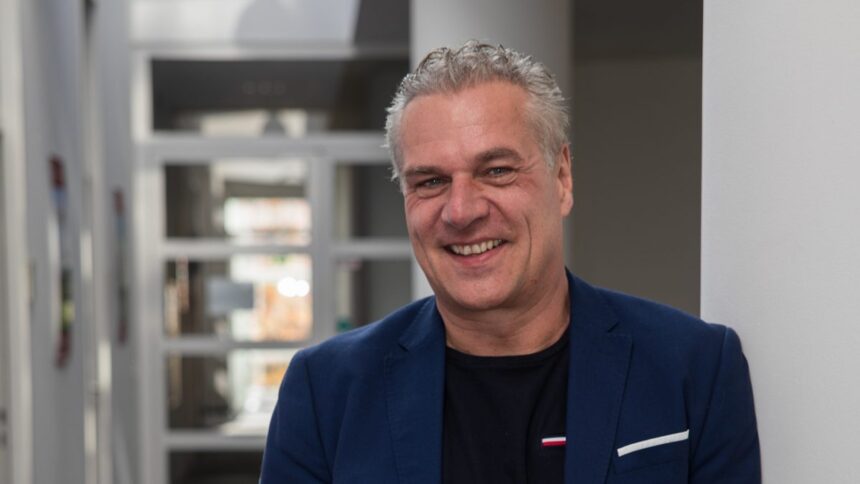Europe’s media industry is confronting a multitude of challenges rooted in outdated systems and restrictive licensing processes. With the landscape of digital content increasingly influenced by social platforms, creators are finding themselves at a disadvantage, as these platforms dominate global attention but offer minimal financial returns. This complex environment hampers innovation, particularly for independent voices eager to compete.
Amid these challenges, Hendrik Hey, recognized as a pivotal figure in Europe’s Web3 media infrastructure, is championing a transformative approach through his company, MILC (Media Industry Licensing Content). Headquartered in Luxembourg, MILC aims to leverage Web3 technology to establish a robust media infrastructure that navigates Europe’s complexities, fostering fair monetization models that align with stringent regulatory requirements.
For decades, the European film and television industry has exhibited significant fragmentation, with many producers and broadcasters confined within national silos. This has been aggravated by national licensing frameworks that restrict cross-border coordination, making it difficult for independent creators to secure funding and distribution. Although the rise of global streaming initially suggested a move towards a more open marketplace, it instead perpetuated a concentration of power among a few large players.
Traditional licensing processes have also become cumbersome, with negotiations that once took months now conflicting with an audience’s demand for instantaneous access. Rights are often encumbered by lengthy contracts that are challenging to audit and enforce across different jurisdictions, contributing to decreasing margins for creators and studios. Meanwhile, social platforms continue to capture the lion’s share of the revenue by monetizing user engagement rather than the content itself.
The industry clearly needs a radical overhaul, one that not only modernizes workflows but also transforms the economic landscape of digital media. Hendrik Hey emphasizes the importance of creating a collaborative marketplace where every participant retains autonomy, while also acknowledging that the traditional model of selling digital scarcity cannot endure.
Hey’s foray into media began long before the advent of blockchain. In 1996, he launched “Welt der Wunder,” a science and technology television show that garnered significant viewership by simplifying complex subjects. Over the years, he managed national television stations in Germany and Switzerland, thus gaining invaluable insights into the workings and shortcomings of media systems. This extensive experience laid the groundwork for MILC.
Having witnessed inefficiency and collaboration barriers firsthand, Hey regarded blockchain and Web3 as potential solutions to these persistent challenges. He believes that the metaverse offers a limitless space for creativity that transcends borders. Emphasizing Europe’s unique ability to navigate diversity, he argues that this range of languages, cultures, and markets can be harnessed as an opportunity for innovative solutions.
As production methods evolve with technology—such as AI streamlining operational tasks and virtual sets reducing costs—MILC is at the forefront of connecting these advancements with licensing and distribution. The platform facilitates creators in testing ideas with audiences, managing rights via smart contracts, and broadening syndication across national markets. This dynamic promotes inclusivity for new talent and diverse storytelling, allowing a documentary from France to reach audiences internationally or a filmmaker in the Baltics to share their work across Europe simultaneously.
The burgeoning market context further underscores the urgency and potential of this initiative. The global blockchain technology market is projected to grow from approximately $26.91 billion in 2024 to nearly $1.88 trillion by 2034, representing a compound annual growth rate exceeding 50%. However, such growth necessitates infrastructure that genuinely supports real industries rather than merely focusing on digital collectibles.
Regulatory frameworks such as the General Data Protection Regulation (GDPR), the Markets in Crypto-Assets Regulation (MiCA), and the AI Act are poised to bolster this foundation. These regulations not only protect user rights but also provide a clear pathway for token projects to operate within established parameters. Hey expresses enthusiasm about regulation, stating, “At MILC, we welcome regulation. Because at the end of the day, ideas must be protected.”
Hendrik Hey envisions a future in which audiences seek more than passive engagement on social media; they aspire to take ownership. MILC represents his vision for a functional metaverse in the media sector, one that bridges the gap between creators and audiences while facilitating cross-border collaboration.
MILC not only stands as a pioneering entity in the blockchain and metaverse arena, but it also focuses on Web3 consulting services aimed at assisting complex industries in their transition into this new digital landscape. As a sister company of “Welt der Wunder,” which Hey established over 25 years ago, MILC embodies a commitment to innovation that seeks to redefine the future of media in Europe and beyond. For more information on their initiatives, visit https://www.milc.global.







